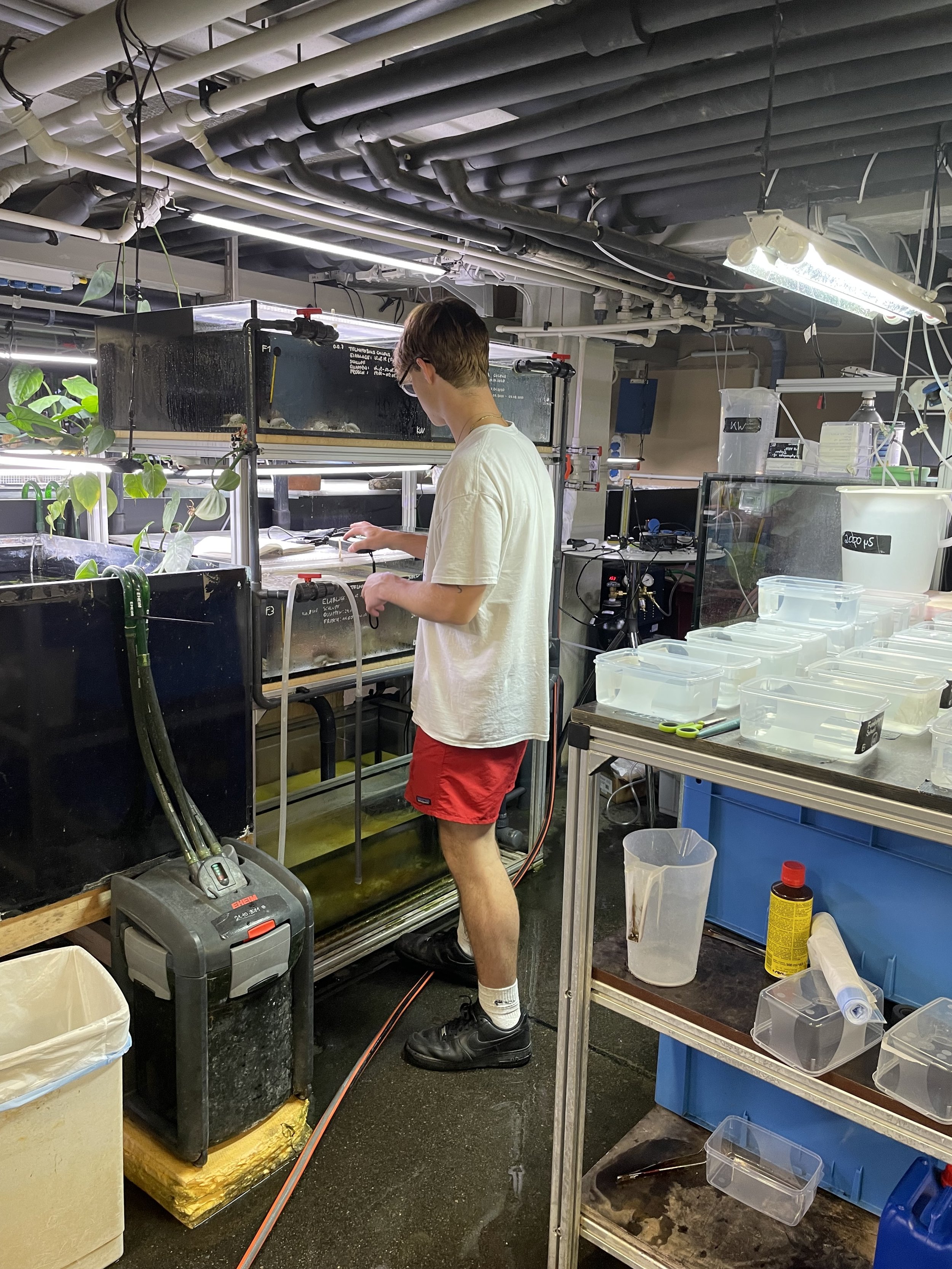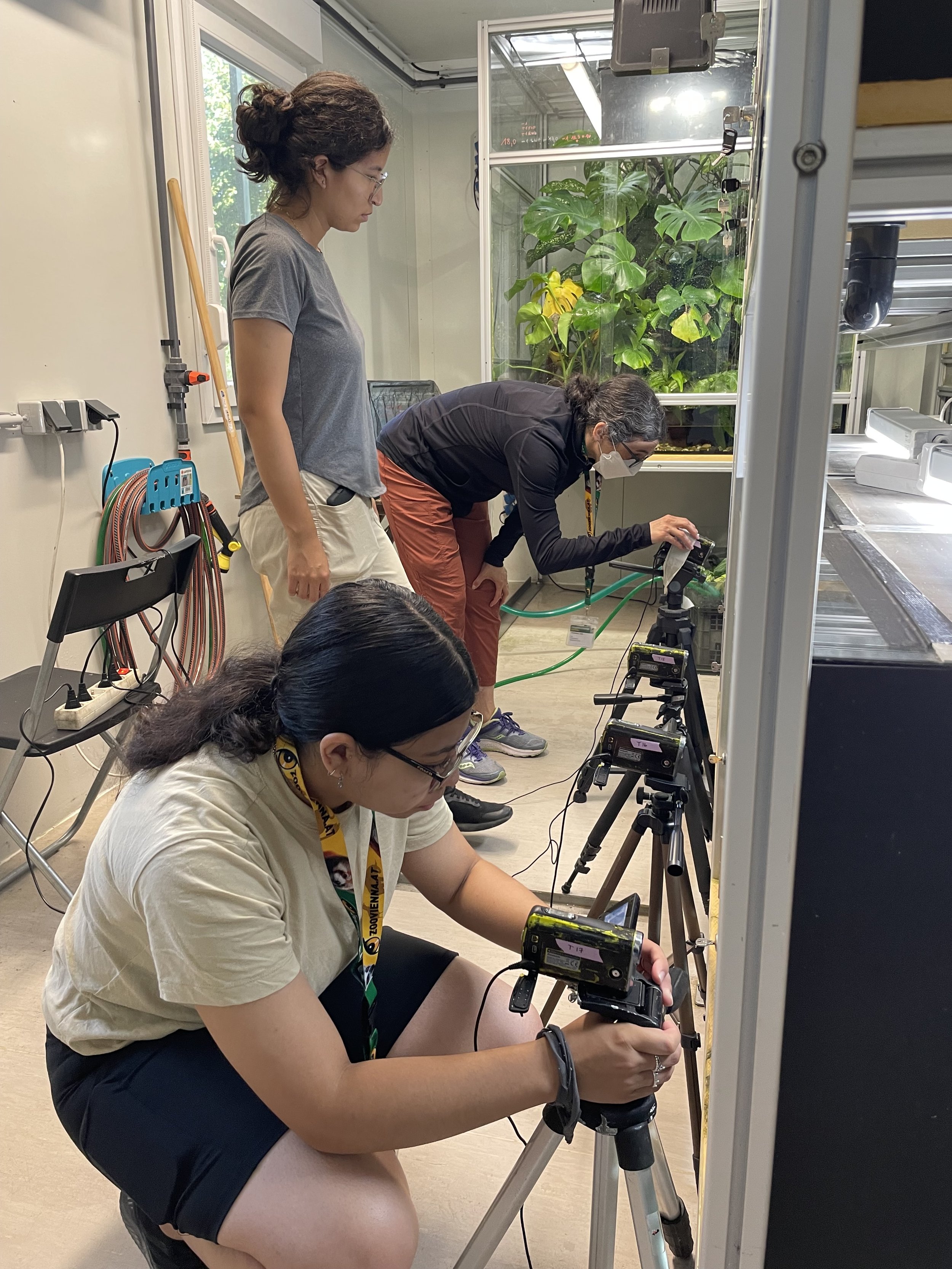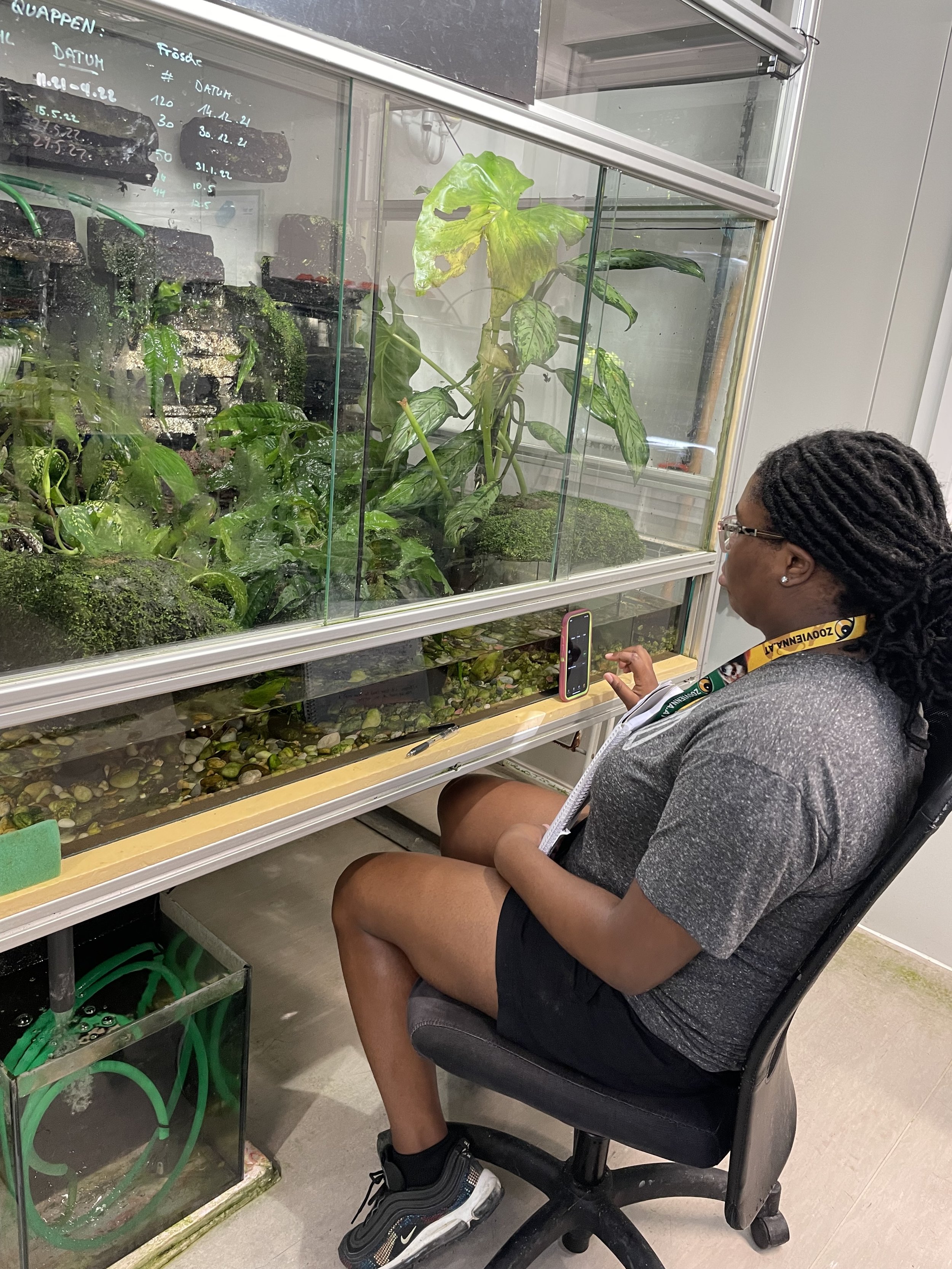International Research Experiences for Students (IRES)
Join us in Austria and India to study
amphibian behavior and physiology
The Brown/Smith IRES Program provides a unique opportunity for undergraduate students to conduct international research in animal behavior and physiology. Studies will focus on frogs, and the work will be done in both Austria and India.
For more information, contact the program leader Dr. Matt Fuxjager at: matthew_fuxjager @ brown.edu
A foot flagging Micrixalus frog displaying in a fast flowing stream found in the Western Ghats of India
The program in a nutshell
Over a 3-year period, IRES Fellows will take part in a major research project that seeks to understand the evolution of behavior and physiology of frogs. The program aims to give Fellows an opportunity to design, execute, analyze, and write up their own independent projects. Our goal is to hone the research skills and acumen of IRES Fellows, while building their intercultural competence and ability to conduct collaborative international research.
Many studies, but not all, will focus on signal evolution in particular groups of frogs that communicate by waving their limbs at each other, in additional to calling. These species are called foot flagging frogs. Thus, Fellows will work under the close mentorship of our foreign collaborators, whose own research programs focus on these unusual displays.
As part of the program, students will:
Participate in a 4-week research experience at the Vienna Zoo in Austria, as well as a 2-week research experience at a field station in the Western Ghats of India.
Work with researchers from Brown University, Smith College, and the Vienna Zoo to study various topics related to foot flagging frogs and other species.
Be encouraged to present their findings as a poster or as an oral presentation at international conferences.
Be encouraged to work with PIs and graduate students to publish their findings in journals that showcase research in the fields of ecology, evolution, behavior, and/or physiology.
Work to help build a frog conservation exhibit at the Vienna Zoo as a tool for public outreach.
Logistics
Students will receive a stipend of $400 per week during the summer research component
Flights, lodging, and public transportation costs will be covered for the summer research component
Timeline
Applications due Friday, 12/8/2023 by 11:59 PM PDT
A slow motion video of a foot flag used for a recently published study by PhD student Nigel Anderson.
Student offers will go out in January 2024
Spring semester 2024: Weekly cohort meetings beginning in early March
Summer research experience from approximately Mid-june to Early-August 2024
Fall semester 2024: cohort meetings to help students follow through on data analysis, poster development, data publication, etc.
Interested in applying? Read below for more information!
Application Requirements
US citizenship or permanent residency
A GPA of at least 3.0
Current sophomore or junior
A strong interest in field biology
Application Selection Criteria
Interest in international research
GPA
Academic Achievements
Maturity
To apply, Students must work with an administrator, advisor, or faculty member
from their home institution to complete the application
Note that student participants will need a valid US passport. If you do not have a passport, and you are accepted into the program, you will need to obtain one as soon as possible. Program administrators can help you with the process upon acceptance.
Applicants must send an unofficial copy of their transcript to
matthew_fuxjager @ brown.edu
Questions? Contact Matthew Fuxjager:
matthew_fuxjager @ brown.edu
Below are the short answer questions on the application:
What motivates your interest in organismal biology? (1,000 character max). In your response, please include any prior research experience you've engaged in that focuses on organismal biology and any classes you've taken that relate to organismal biology. Share how these experiences relate to your interest.
What skills are you hoping to build this summer? (1,000 character max). Please feel free to talk about how your current interests align with the project, any new skills you wish to build, or any current skills you wish to refine, or anything else you and your advisor deem relevant.
What are your career goals, and how will this research experience help you achieve them? (1,000 character max).Please talk about your career goals both in the short-term (what do you plan to do after college) and long-term (what type of career do you see yourself pursuing).
Some fun photos of Fellows at work in the program!
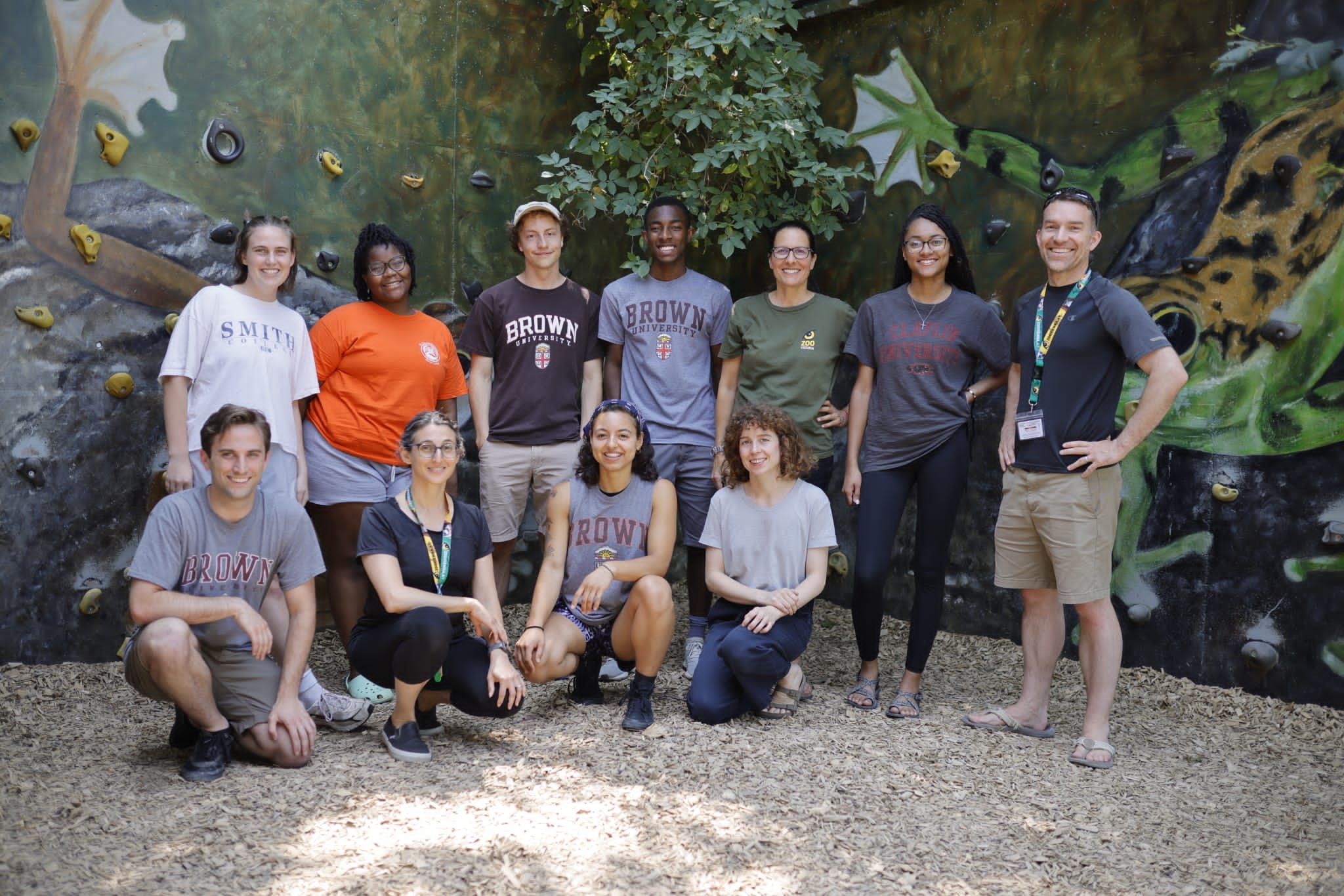
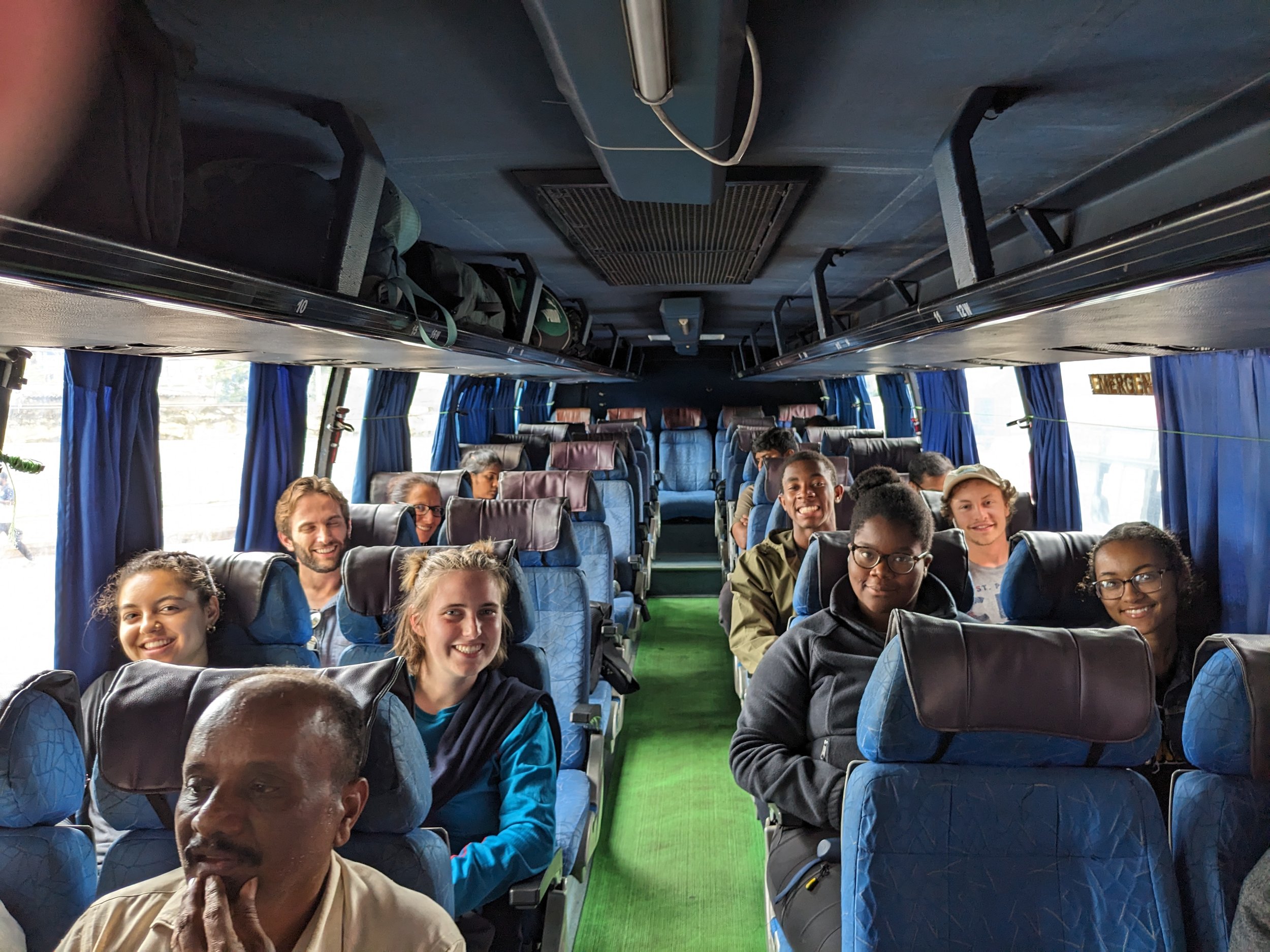


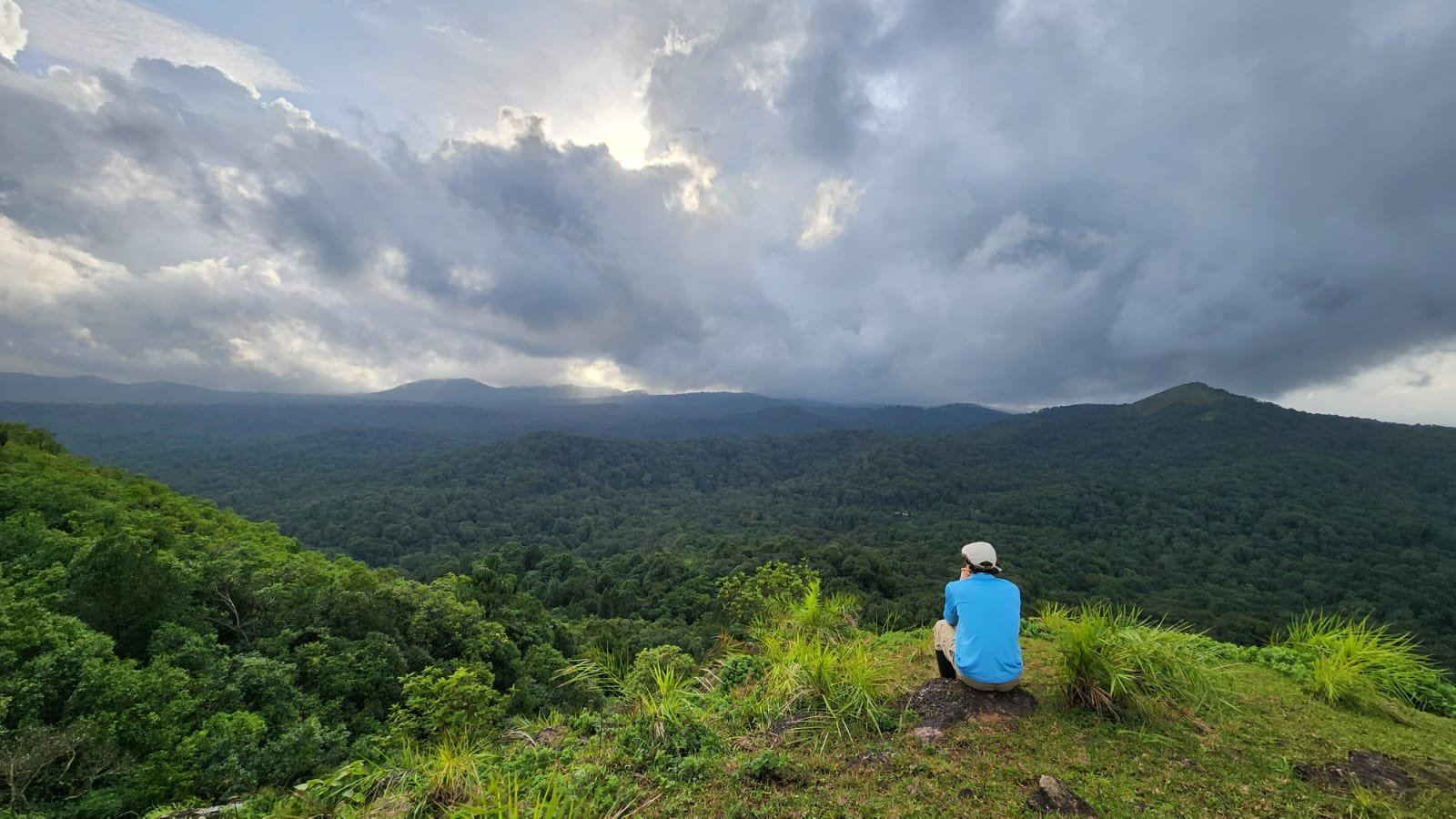
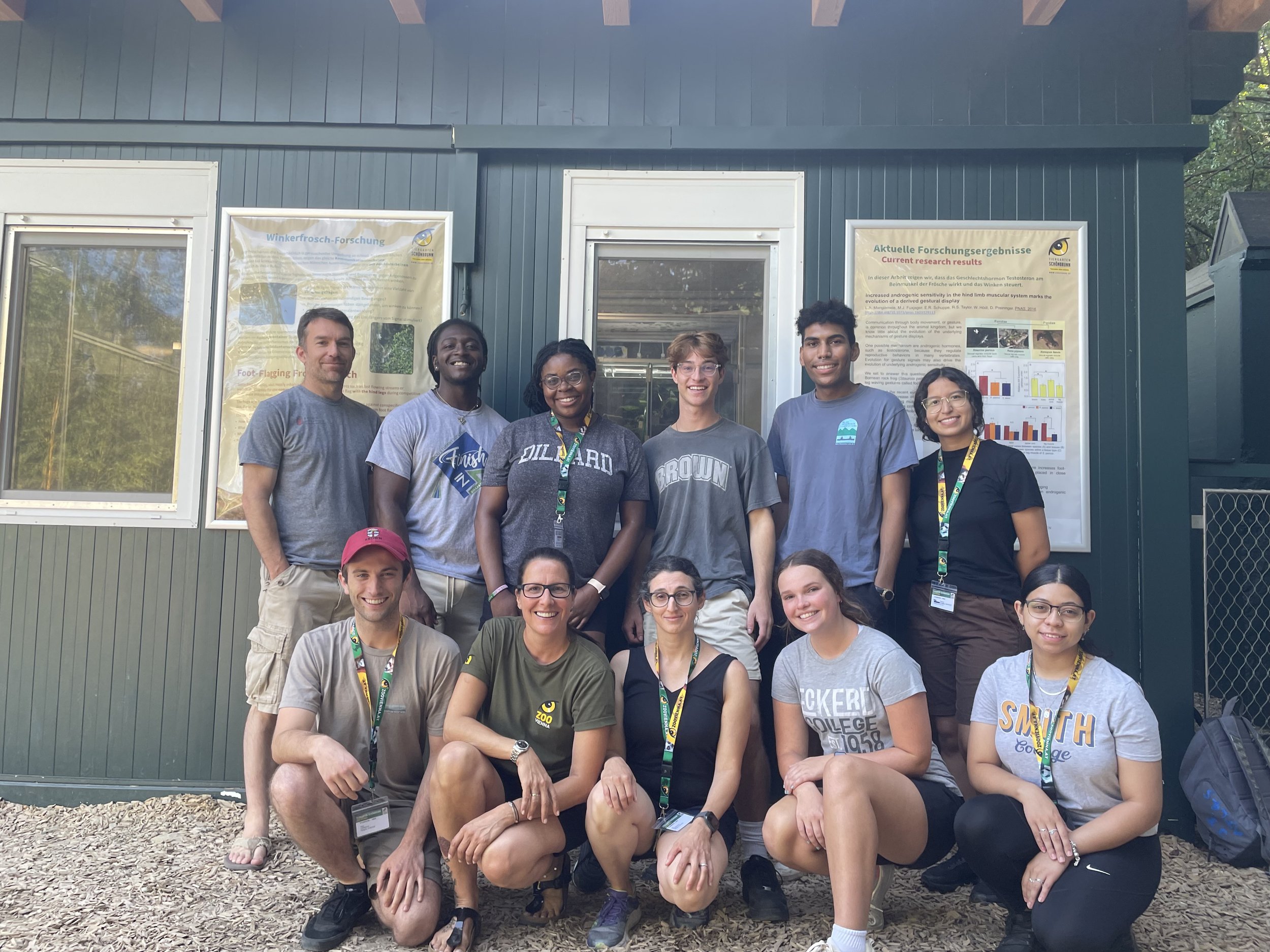



Relevant Research Papers
Anderson, N.K., Preininger, D., and Fuxjager, M.J. 2024. Physiological basis of convergent evolution in animal communication systems. Integrative and Comparative Biology. 64: 1422-1436. doi: 10.1093/icb/icae091
de Padova, J. , Anderson, N.K., Halbauer, R., Preininger, D. and Fuxjager, M.J. 2024. Acute hypoxia exposure rapidly triggers behavioral changes linked to cutaneous gas exchange in Lake Titicaca frogs. Behavioural Processes. 219: 105047. doi: 10.1016/j.beproc.2024.105047
Love, N., Preininger, D., and Fuxjager, M.J. 2023. Social regulation of androgenic hormones and gestural display behavior in a tropical frog. Hormones and Behavior. 155: 105425. doi: 10.1016/j.yhbeh.2023.105425
Stückler, S., Dawkins, X.I., Fuxjager, M.J., and Preininger, D. 2023. From masquerading to blending in: ontogenetic shifts in antipredator camouflage in Wallace's flying frogs. Behavioral Ecology and Sociobiology. 77: 102. doi: 10.1007/s00265-023-03376-w
Anderson, N.K., Goodwin, S.E., Schuppe, E.R.§, Dawn, A. Preininger, D. Mangiamele, L.A., and Fuxjager, M.J. 2022. Activational vs. organizational effects of sex steroids and their role in the evolution of reproductive behavior: looking to foot flagging frogs and beyond. Hormones and Behavior. 146: 105248. doi: 10.1016/j.yhbeh.2022.105248
Stücker, S., Fuxjager, M.J., Preininger, D. 2022. Evidence that catecholaminergic systems mediate dynamic colour change during explosive breeding events in toads. Biology Letters. 18: 20220337. doi: 10.1098/rsbl.2022.0337
Anderson, N.K., Grabner, M., Mangiamele, L.A., Preininger, D., and Fuxjager, M.J. 2021. Testosterone amplifies the negative valence of an agonistic gestural display by exploiting receiver perceptual bias. Proceedings of the Royal Society, B. 288: 20211848. doi: 10.1098/rspb.2021.1848
Anderson, N.K., Gururaja, K.V., Mangiamele, L.A., Netoskie, E., Smith, S., Fuxjager, M.J., and Preininger, D. 2021. Insight into the evolution of anuran foot flag displays: a comparative study of color and kinematics. Ichthyology and Herpetology. 109: 1047-1059. doi: 10.1643/h2020160


